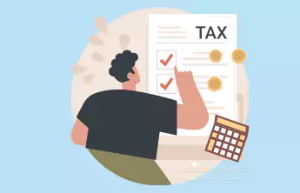Financial Planning for Those in the Teaching Profession
Blog Title
1876 |
9/12/18 6:57 AM |
Riya is a fantastic teacher and a very intelligent woman! She loves her students and is dedicated to her job. She is also a wife and mother of two kids. On a typical day, she is busy with her professional and personal chores and barely has time for anything else including financial planning. One fine day she met Rahul, a financial advisor while he was visiting her school. Riya’s and her husband were turning 40 and they felt the need to have a concrete financial plan but they weren’t sure from where to begin their planning.
Rahul then guided Riya, “The first step in the process was to begin reviewing what they already had in place. At first glance, things looked pretty good, she and her husband were saving a considerable amount of money, they had a life insurance plan in place and modest levels of debts which they managed together. After a few discussions, she said, “As a teacher, I am so busy with my students and my personal life that my finances get overlooked.”
Rahul replied, “Start planning for short-term and long-term finances. It is better to start planning for a better financial life rather than living from one paycheck to another?
Rahul then asked, “Don’t you want to take vacations or want to lead a good retired life?”
Take one step at a time. This is how you can plan your finances well to reach your goals:
- Start planning for your retirement:
It’s never too early to save. You may have just started your career and retirement may seem too far away. But if you plan for retirement right now, it will lead to financial freedom when you retire. Teachers generally have pensions, but you can’t entirely depend on that when you retire if you want to preserve your current standard of living.
- Create a budget:
A budget inspires you to save and spend in a well-organized manner. Collect and study spending patterns. Keep an eye on the source and application of money. Note down all your fixed expenses and variable expenses. Fix a figure for your weekly or monthly expenses and follow the budget.
- Save first:
It is a common phenomenon that you earn money first, spend and then save. Honestly, it’ll not work for long. Your initial months of earning and spending are vague. But observing at your spending and saving patterns for a few months, helps correct your moves.
So, pay yourself first. You can try saving small amounts of nearly Rs 4000 p.m. in the new age ULIP Edelweiss Life Wealth Plus. A few years later when you look back, you’ll have a considerable amount of wealth accumulated.
- Save for emergencies:
Yes, financial emergencies come uninvited and exhaust a huge chunk of money. Thus, it is vital that you start saving for crises.
- Get yourself adequate insurance:
You are not responsible until you get a term insurance plan. A term plan ensures that your family doesn’t have to compromise on their standard of living standards when you are no longer present. The earlier you buy term insurance plan, the lesser the premium amount.
Getting your finances in order and investing in your future will not only give you a peace of mind, but it will allow you to have a wonderful retirement. All you have to do now is simply follow these financial strategies and you will be ready for a bright future.










